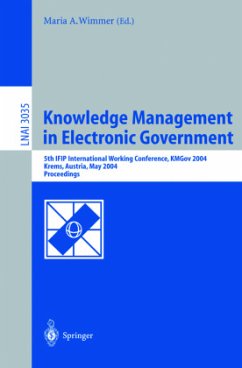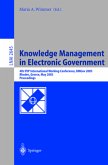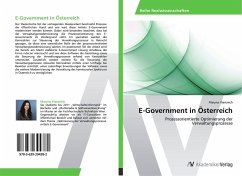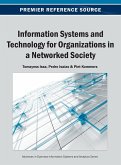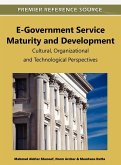This book constitutes the refereed proceedings of the 5th IFIP International Working Conference on Knowledge Management in Electronic Government, KMGov 2004, held in Krems, Austria in May 2004.
The 34 revised full papers presented were carefully reviewed and selected for publication. The papers are organized in topical sections on KM concepts and methodologies, strategies to implement KM in the public sector, knowledge ontologies and structuring concepts for public administration, technologies for KM support in public administrations, requirements engineering for KM, representing legal and procedural knowledge, KM support for democratic processes and citizen participation, and examples of KM in public administrations and case studies.
"We know more than we can tell and we can know nothing without relying upon those things which we may not be able to tell" (Michael Polanyi) The importance of knowledge management (KM) is increasingly recognized in the public sector and in relation with e-government implementations. Because governments and public administrations deal with information and knowledge on a large scale, this domain is particularly predestined to actively practice KM: much of the work of public authorities refers to the elaboration of data, infor- tionandknowledgeoncitizens,businesses,society,themarkets,theenvironment, laws, politics, etc. Evenmany"products"ofpublicadministrationandgovernmentaredelivered intheshapeofinformationandknowledgethemselves.Thisaspectespecially- plies to the policies, management, regulation and monitoring of society, markets and the environment. With the recent evolution of e-government projects, high expectations are linked. As a consequence, e?cient support from adequate KM conceptsandtoolstoexploitthehugeknowledgeandinformationresourcesdealt with in e-government is expected. Not only the trend towards a knowledge society calls for KM solutions. C- rent e-government developments signi?cantly in?uence the public sector. These require the rethinking of knowledge distribution and management: Citizen- and business- oriented service delivery, including one-stop service provision, inter- ganizationalco-operationbetweengovernmentagenciesandcross-bordersupport for complex administrative decision making call for largely opened-up access to remote information and knowledge resources. E-government - and speci?cally the concept of online one-stop government - integrates dislocated information and knowledge sources into a global virtual knowledge fabric.
Hinweis: Dieser Artikel kann nur an eine deutsche Lieferadresse ausgeliefert werden.
The 34 revised full papers presented were carefully reviewed and selected for publication. The papers are organized in topical sections on KM concepts and methodologies, strategies to implement KM in the public sector, knowledge ontologies and structuring concepts for public administration, technologies for KM support in public administrations, requirements engineering for KM, representing legal and procedural knowledge, KM support for democratic processes and citizen participation, and examples of KM in public administrations and case studies.
"We know more than we can tell and we can know nothing without relying upon those things which we may not be able to tell" (Michael Polanyi) The importance of knowledge management (KM) is increasingly recognized in the public sector and in relation with e-government implementations. Because governments and public administrations deal with information and knowledge on a large scale, this domain is particularly predestined to actively practice KM: much of the work of public authorities refers to the elaboration of data, infor- tionandknowledgeoncitizens,businesses,society,themarkets,theenvironment, laws, politics, etc. Evenmany"products"ofpublicadministrationandgovernmentaredelivered intheshapeofinformationandknowledgethemselves.Thisaspectespecially- plies to the policies, management, regulation and monitoring of society, markets and the environment. With the recent evolution of e-government projects, high expectations are linked. As a consequence, e?cient support from adequate KM conceptsandtoolstoexploitthehugeknowledgeandinformationresourcesdealt with in e-government is expected. Not only the trend towards a knowledge society calls for KM solutions. C- rent e-government developments signi?cantly in?uence the public sector. These require the rethinking of knowledge distribution and management: Citizen- and business- oriented service delivery, including one-stop service provision, inter- ganizationalco-operationbetweengovernmentagenciesandcross-bordersupport for complex administrative decision making call for largely opened-up access to remote information and knowledge resources. E-government - and speci?cally the concept of online one-stop government - integrates dislocated information and knowledge sources into a global virtual knowledge fabric.
Hinweis: Dieser Artikel kann nur an eine deutsche Lieferadresse ausgeliefert werden.

